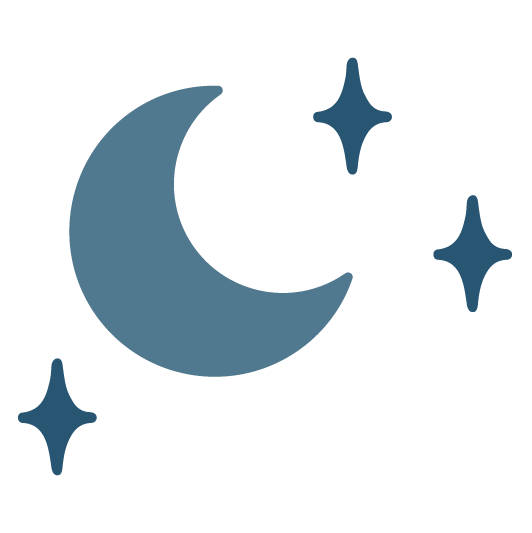Bedtime procrastination – why bedtimes are different to bodytimes
Bedtime procrastination means that people don’t go to bed and sleep ‘on time’ although there is nothing preventing them from doing so. It’s an intention-behaviour gap. They intend to go to bed but then stay up for another while. What’s the big deal you might ask? Well, less opportunity to sleep and therefore more sleep deprivation and tiredness the next day at work.
Before getting into what to do about it, let’s see what’s causing this behaviour. Is it simply due to lack of self-control? Netflix winning against your sleepiness? You think because of the day you had, you owe it to yourself and deserve some me time (sub-type: revenge bedtime procrastination). Or might there be a different mechanism underlying your bedtime procrastination? One to do with your circadian biology and your individual, internal preference for when to sleep (and when to be awake): your chronotype.
Spoiler alert: Recent research from Kühnel et al. (2018) provides proof for the later, bedtime sleep procrastination is not voluntary. Keep reading to find out why.
What chronotype means in practical terms.
Chronotype refers to your personal preference when to be active/ awake and rest/ sleep. People differ in their preferences and thus their chronotype. Some people sleep early (‘larks’), others sleep late (‘owls’) and the rest fall asleep somewhere in between. Hence, rather than having fixed categories of chronotypes, the whole concept is a continuum of sleep (and wake) times, and where you personally land depends on different factors. These include age, genetics and (most crucially) your exposure to and types of light during the day and night. Larks not only wake early, their whole biology and cognitive functioning peak earlier compared to owls. That also means they feel tired earlier in the evening and struggle to stay up long into the night. For late chronotypes, however, everything is shifted to a later time of day. They are more alert in the late afternoon and evening, thus making them feel less tired but more inclined to do things which are more stimulating (as opposed to sleep-promoting activities let’s say).
By now, you are probably beginning to see why especially late chronotypes struggle to go to bed early. But there are two more points to make.
The first is the little-known biological fact that you feel most awake just before your internally preferred sleep time. The consequence of this is an inability to get to sleep hours before your natural sleep time. A good example is this: Think about having to be at the airport very early in the morning, say 5am. You want to be well rested and go to bed at 8pm the night before. However, instead of simply slipping into dreamland you find yourself struggling to even keep your eyes closed, let alone feel tired. That’s your wake drive peaking or interfering with your intentions.
The second, and without which bedtime procrastination wouldn’t be a thing, is your social schedule. By that I mean all of your social interactions and societal demands. Good examples are the timing of work and school. Most of us try and fit in with the same social schedule: Start work/ school around 8am or 9am and while the finish time varies a bit more but for now let’s say the majority of people stops working by 8pm. Once you have finished work, you don’t go to bed of course. Because finally you get the chance to take care of personal matters including the chores. None of this is done within 5 minutes, and before you know it it’s time to go to bed.
In a society that values early starts owls are at a disadvantage.
Now, if you are a lark like me, this system suits you. You wake relatively early and can easily be at work for 9am. Come the evening, your cognitive performance is no longer brilliant and you feel tired (once you’ve passed the peak in the waking drive of course). Your motivation to engage in activities that could delay your bedtime is also much lower. The time you intend to go to bed to get the sleep you need, matches the time you feel tired. You don’t procrastinate sleep.
For an owl, things are entirely different. Or perhaps not different, but their internal circadian rhythms (a type of biological rhythms) are delayed compared to the larks. That’s why owls feel alert and tired at later times compared to larks. It follows that for an owl bedtime is naturally later too. Which means they should wake up later in the morning, once they had they sleep they need (7-9 hours). Unfortunately, that’s where biological needs and societal arrangements clash.
Owls are expected to conform to the same early-ish working schedules as larks. And like larks, owls will therefore set an intention to go to bed ‘on time’ – a time that allows them 7-9 hours of sleep and get up at 6am or 7am. But because their body clock sends the bedtime signal only much later, they struggle to go to bed and fall asleep early. No amount of will power in the moment will change that. What’s referred to as bedtime/ sleep/ while-in bed procrastination is in fact the behavioural expression of an owl’s circadian drive to be awake peaking – just before their personal, biological sleep window opens.
The impact of low self-control.
Let’s return to the question whether low self-regulation skills are to blame. I think this does play a role albeit a smaller one. Lack of sleep leaves you feeling unrefreshed and unrestored. That has consequences for your ability to apply self-control and do what you intend to do. Meaning it can lead to procrastination generally, not just going to bed on time. Late chronotypes tend to have unhealthy lifestyles and diets compared to early chronotypes for example. Because many owls live in a constant misalignment (between their internal clock and societal schedules) causing an almost permanent sleep debt, their self-regulation resources can never be really restored. Thus, it’s harder for them to follow-through with their intentions. Instead, they (and larks are no different when they are tired), go for short-term pleasures – read just one more blog article on their favourite subject. And so they ‘procrastinate’ bedtime and sleep once again.
What can you do?
Earlier on I said that will power can’t change your body clock. The latter is a biological entity, it’s part of a biological system. The only way to influence and change that is through your daily behaviour. When you do what you do and the regularity of these behaviours in relation to your sleep time matter. Your eating and probably your exercise window are good examples. But the most important behaviour that will affect your clock is when you expose yourself to light and also darkness. If you want to shift your body forward, i.e. to an earlier time, do the following: Dim the lights in the early evening and go outside first thing in the morning. You have to do this on a daily basis and you will also have to adjust the rest of your lifestyle (and perhaps that of your family) too.
Something that may (or may not) be easier to do is to give yourself the gift of quality me time. Doing something what gives you a sense of ‘I’ve done something for myself today’.
I wonder what activities and also acting in what way will make you feel that you have achieved something for yourself?
If you want to learn more about your body clock and how to shift it, or how a little me time can help sleeping well, email or book an initial call with me.
Warmly,
Dr Kat

